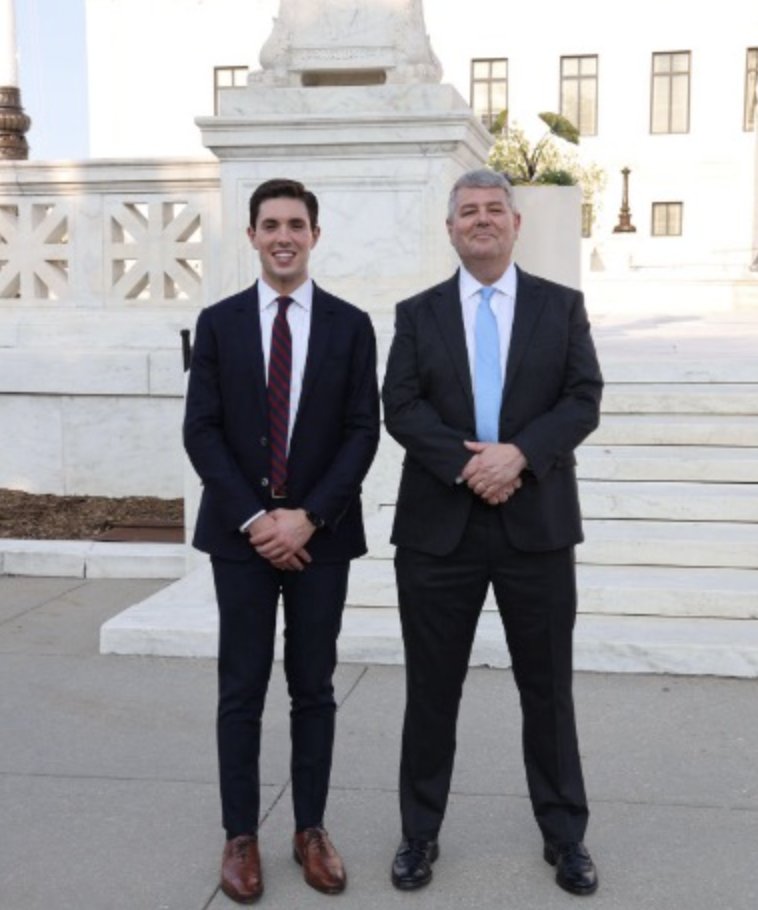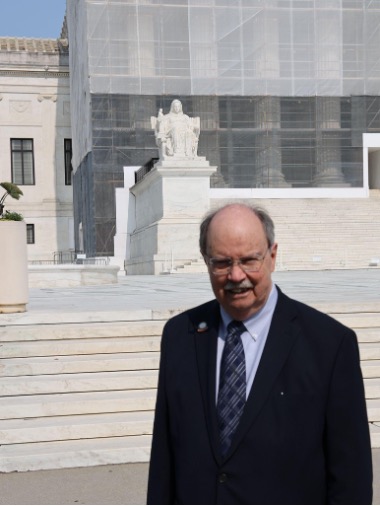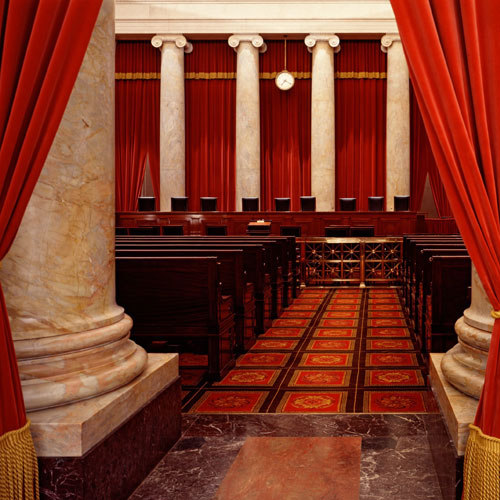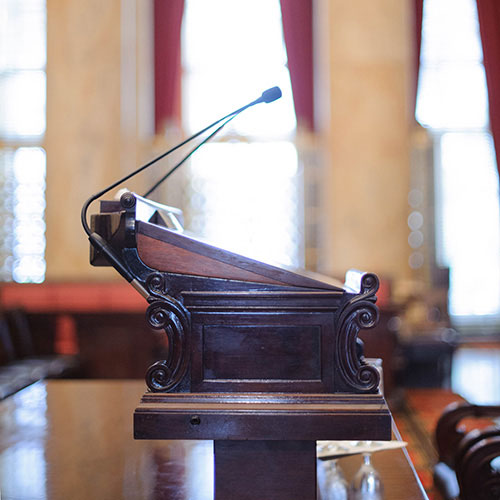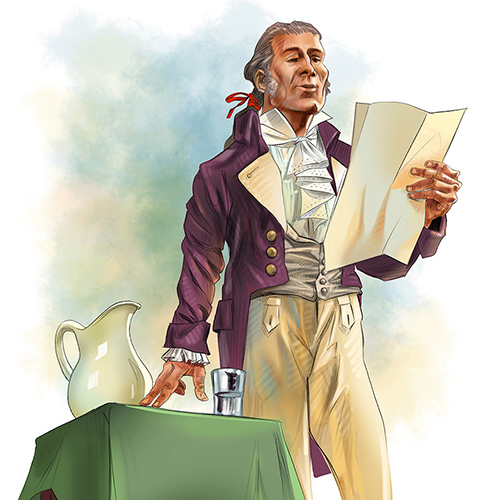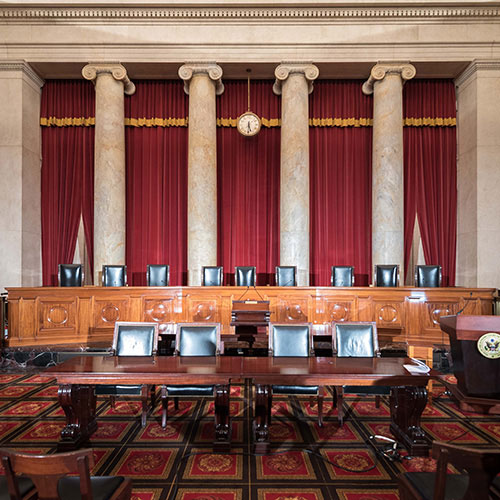Legal historians, both young and established, were celebrated at the Supreme Court during the Society’s Annual Meeting on June 2nd. As the Society continues its financial commitment to supporting important new research in Supreme Court history. In a ceremony in the Courtroom, the Society awarded its Hughes-Gossett Prize for the best article in the 2024 Journal of Supreme Court History to Terence Walz for his article “’ Judge’ Eugene Brooks: Supreme Court Messenger, Proponent of Black Awareness, 1881-1926.” Walz is an independent historian specialized in the history of Washington, D.C. His article examines the important role Eugene Brooks played as a messenger to Chief Justice Melville Fuller and his significant impact on the African-American community of D.C. He was joined by last year’s winner, Barry Cushman, who had been unable to receive his award in person. Cushman’s article is titled “Court-Packing in Context” and examines how, during the Great Depression, members of Congress introduced a wide variety of alternative measures for addressing their dissatisfaction with recent Supreme Court decisions invalidating various state and federal laws designed to relieve economic distress and stimulate economic recovery. Cushman is the John P. Murphy Foundation Professor of Law at the University of Notre Dame.
The Society also bestowed awards on two young legal scholars. Isabel Miller travelled from Massachusetts to receive the Hughes-Gossett Prize recognizing the best student article submitted to the Journal of Supreme Court History. Her article “’Our Leading Feminist’: Dorothy Kenyon and the Origins of Equal Protection for Women in Hoyt v. Florida” highlights the seminal role played by feminist lawyer Dorothy Kenyon in expanding access to jury service to women. Miller wrote the article in her third year at Georgetown Law School. Dennis Weiboldt travelled from Indiana to receive the Henry J. Abraham Early Career Research Grant. This is a competitive cash award for doctoral students who are no more than five years from completion of the Ph.D. It is given on the basis of a student’s potential for producing publishing work in the field of Supreme Court history. Weiboldt is researching an article on William Bentley Ball, the expert on constitutional questions concerning the role of religion in education. He is a J.D./Ph.D. student in history at the University of Notre Dame.

